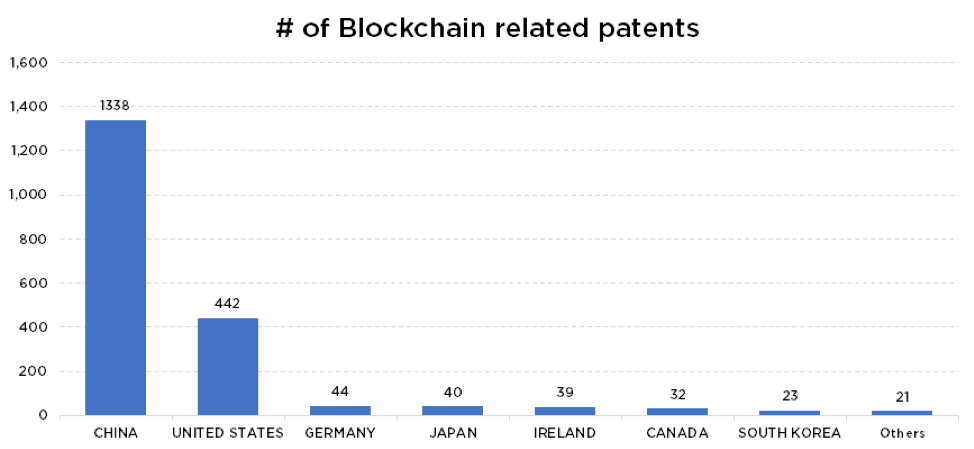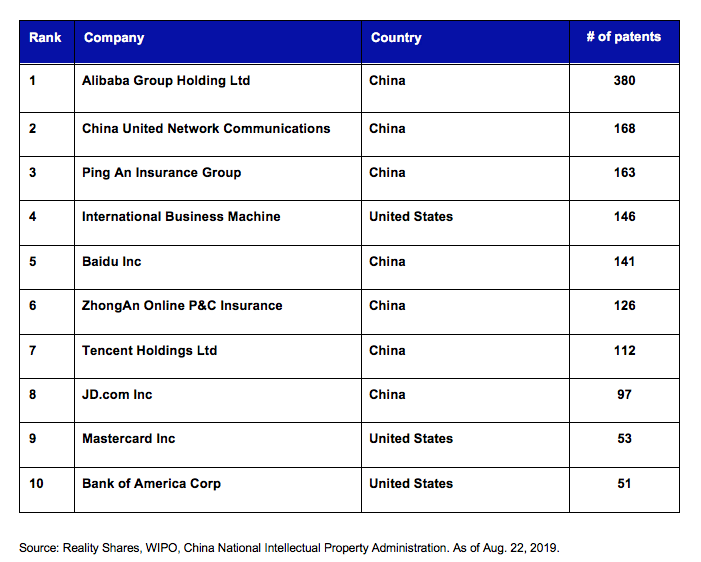Observation | Why can China lead in the blockchain innovation competition?
Chinese government actively participates in blockchain technology
China has become one of the first countries to recognize the potential of blockchain technology. The 13th Five-Year Plan (2016-2020) mentions:
"IoT, cloud computing, big data, artificial intelligence, machine deep learning, blockchain, bio-gene engineering and other new technologies drive the cyberspace to evolve from the Internet of Everyone to the Internet of Everything. Digital, networked and intelligent services will have nowhere. No."
Even in terms of foreign policy, China is actively exploring cooperation with the UK and Central Europe in the area of blockchain.
In addition to strategic policy initiatives, the Chinese government is also concerned about the functional aspects of the blockchain. Chinese government agencies have taken the lead in understanding blockchain projects at the public and corporate levels. China Information Industry Development Center regularly publishes major public chain technology evaluation indexes and rankings such as Bitcoin, EOS and Ethereum. The evaluation of these projects is based on their basic skills, applicability and creativity.
- I understand the most common cryptographic techniques in blockchain: zero-knowledge proof
- BTC succumbs to the $10,000 mark, and mainstream currencies continue to fluctuate
- Finally landed! Bakkt physical settlement bitcoin futures trading platform officially launched
In addition, starting in 2017, the government-approved China Electronics Standardization Institute (CESI) began testing the functional function of the standard blockchain system to verify the robustness of the top blockchain projects operating in China. The certification process is very rigorous and based on a wide range of guiding principles, taking into account the emerging nature of blockchain technology, which are very useful in unmanageable environments. Currently, only 30 projects have been certified. Certification is voluntary and not mandatory, but it is quite credible in the blockchain community.
Another ambitious plan of the Chinese government is to issue its own national digital currency. A senior official of the People's Bank of China (PBOC) said last month that the bank is preparing to issue a new digital currency. The Chinese government has been involved in the project since 2014. PBOC currently has more than 40 patents related to digital currency.
The Libra cryptocurrency project announcement released by Facebook in June seems to have affected the central bank's expansion of its digital currency distribution. Similar to Libra, China's digital currency is also expected to be fully supported by reserves.
Chinese companies are rapidly adopting blockchain technology
Driven by the government, Chinese companies are also leading the way in R&D and adoption of blockchain technology, and their adoption rate exceeds that of US counterparts.
The Deloitte blockchain survey of 2019 shows:
- 73% of Chinese respondents view the blockchain as the five strategic priorities, compared with 56% in the US.
Similarly, in the Deloitte 2018 survey:
- Forty-nine percent of Chinese respondents said their organizations have used blockchain technology, compared with 14% in the US.
- 86% of Chinese respondents are currently investing in employees with blockchain experience, compared with only 14% in the US.
China's blockchain industry is booming and its industrial structure is diversified. According to data from Beijing data service provider Blockdata, China leads the world in the launch of new blockchain projects. As of November 2018, 263 projects are in progress, accounting for 25% of the global market.
A white paper issued by the Ministry of Industry of China in May 2015 pointed out that the blockchain is used in China across a wide range of industries, from hardware manufacturing, platform and security services, application services, investment, media and human resources services. The company has adopted blockchain technology.
China has become a global leader in blockchain research, as evidenced by the number of patent applications. The number of blockchain patents applied for by China ranks first in the world. According to Reality Shares' survey, as of August 2019, the number of patents related to blockchain (1,338) applied by Chinese listed companies was nearly three times that of US companies (442) and German companies (44).
The number of blockchain patents owned by Chinese companies accounts for 68% of the global patent applications. The top three companies in the world – Alibaba (380), China United Network Communications (168) and Ping An Insurance (163) – are Chinese companies, and the fourth-ranked IBM (146) is based in the United States. See below:

Similarly, seven of the top ten companies in the world in blockchain patents are Chinese companies. The top ten companies in the blockchain related patents are:

Reality Shares believes that blockchain technology has great potential to change the way global businesses operate, and China has clearly become a leader in this field.
We will continue to update Blocking; if you have any questions or suggestions, please contact us!
Was this article helpful?
93 out of 132 found this helpful
Related articles
- Ping An’s account is intended to be listed in the US in mid-November: the blockchain business has served more than 200 banks.
- Is bitcoin mining still okay? This is the latest sharing of more than ten mining big coffee | New Era Mining Summit
- Interview with Fortune: Will Bakkt help Bitcoin become mainstream?
- Bitcoin should become the industry benchmark, the founder of the senior fund reveals the investment strategy
- Observations | Does everyone's concern about EOS come true?
- Monroe, zcash, Dash, etc. have been taken off the South Korean big exchange Upbit, the privacy of the currency really reached the end of the road?
- President of Ant Financial Service: Blockchain has become the core "technical" capability of ants






